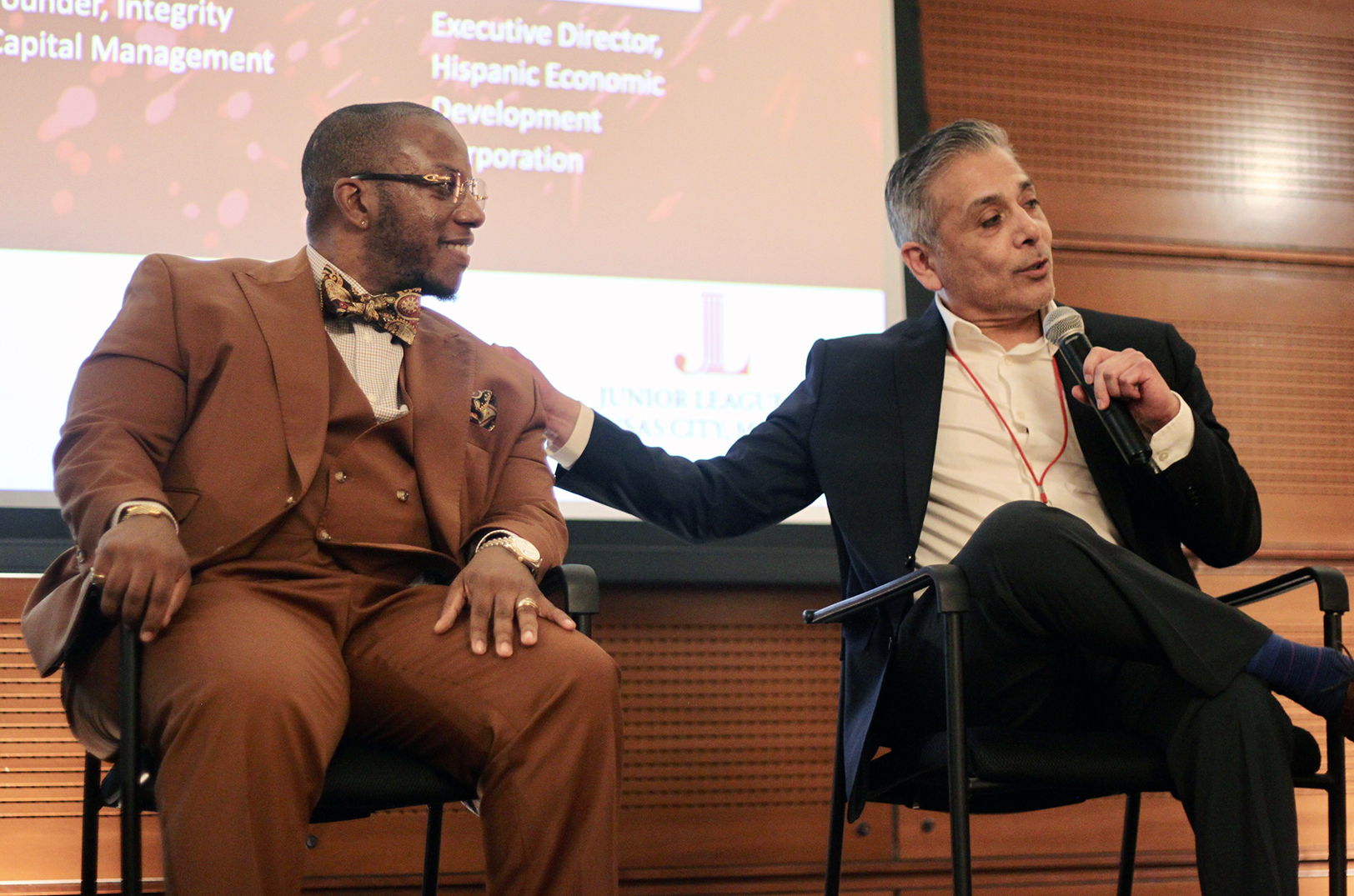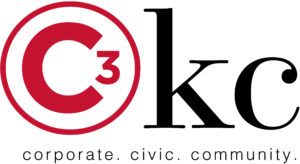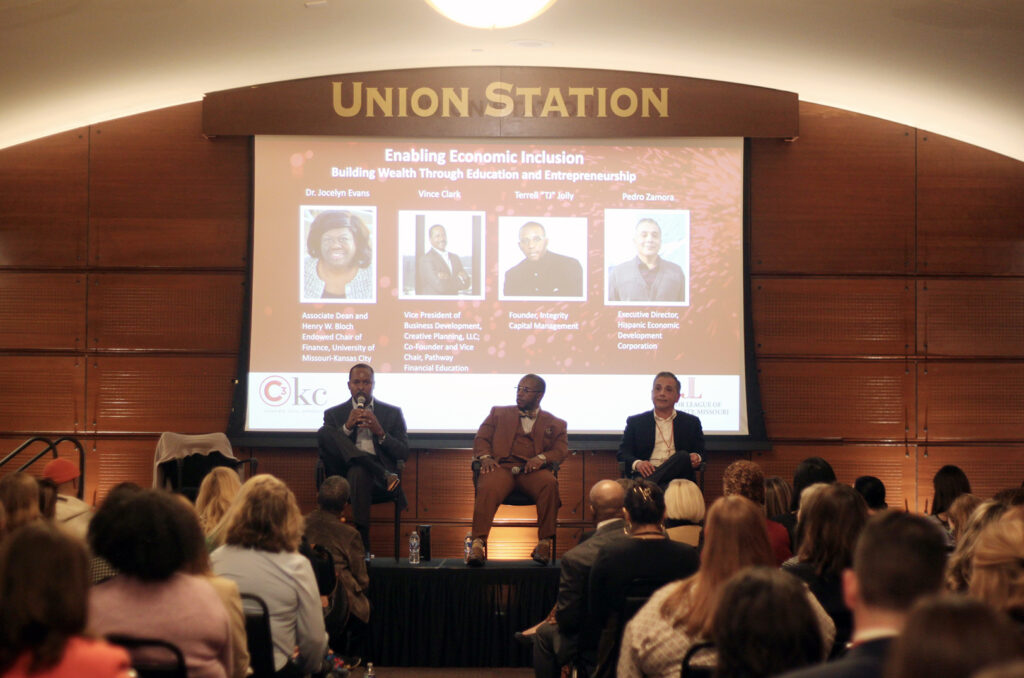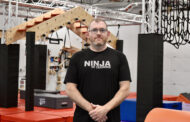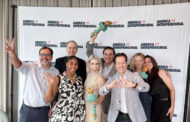Editor’s note: The Junior League of Kansas City — through its C3KC conference — is an advertiser with Startland News.
An important step in bridging the wealth gap and building equity is meeting people at their level of readiness, Terrell Jolly shared.
“Because if you do not, they will inconvenience you in some kind of way and that’s the sad reality,” explained Jolly, founder of Integrity Capital Management, during the “Enabling Economic Inclusion” session at Thursday’s C3KC conference at Union Station. “We really focus on ‘How do we put people first?’”
Jolly was joined on the panel by Pedro Zamora, the Hispanic Economic Development Corporation executive director, and Vince Clark, vice president of business development for Creative Planning and co-founder and vice chair of Pathway Financial Education. The session was moderated by Dr. Jocelyn Evans, University of Missouri-Kansas City associate dean and Henry W. Bloch Endowed chair of finance, and hosted by the Junior League of Kansas City, which organizes C3KC.
Creating an ecosystem is important in Kansas City, Zamora said, but equitable service of people within that ecosystem requires considering the layers of readiness at play.
“What we’re doing is trying to narrow the gap, create pathways that will bring everybody to the table of prosperity, economic wealth and dignity,” he continued. “Low- and moderate-income individuals — that’s where we shouldn’t be concentrating — moving them up in a class of survivability and dignity. We do that through financial risk management, entrepreneurship — and the most important part — digital literacy training. … We’re creating that X-Y access point and we’re closing the gaps where they can participate in making investment dollars.”
Click here to check out an overview of C3KC 2023’s breakout sessions.
People in poverty lack the requisite education, relationships, capital, and access to knowledge according to Clark, whose Pathway organization provides free comprehensive financial education and training to small business owners and individuals in under-resourced communities.
“The wealth gap is a question of money, yes,” he noted. “But it’s also a question of values. Today, money and the economy are intertwined with emotions, self esteem, identity, and even core issues of human dignity.”

Vince Clark, vice president of business development for Creative Planning and co-founder and vice chair of Pathway Financial Education, speaks during the “Enabling Economic Inclusion” session at the C3KC conference
In reality, Clark added, most Americans don’t understand finance and people in poverty must learn the language of money.
“If you give a poor person a million dollars, there’s a very good chance they’ll be poor again in short order,” he said. “The main reason is the lack of resources to create a different pathway for success. Financial literacy is an essential element of that pathway.”
In classes provided by HEDC, Zamora noted, instructors talk — in their native language — about what is needed to remove the barriers that people are presently dealing with.
“So they can understand and build that knowledge, education, and language around finance and risk management,” he continued.
The wealth gap in our communities is 150 percent real estate, shared Jolly, who is the CEO and managing partner of several property entities that oversee more than 200 plus residential and commercial real estate properties with the hopes of revitalizing the urban core through affordable housing and pathways to quality housing for all.
“The reality is that people who look like me — or people from communities that I serve — it seems like this distant thing to actually grasp and own a home,” he explained. “They don’t have the steps. They don’t have the resources, and nine times out of 10, they come from a lineage of not even understanding what ownership really means.”
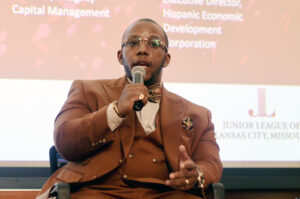
Terrell Jolly, Integrity Capital Management, addresses the crowd during the “Enabling Economic Inclusion” session at the C3KC conference
Hope starts at home, Jolly added.
“Downtown needed to happen, right?” he said. “And we see what’s happening. Now we’re getting the [NFL] Draft and we’re getting [the World Cup] and all these different things. But why can’t we take the same risk on people who need houses?”
It’s a multifaceted problem that will take a multifaceted solution, according to Clark, as the founding of this country was not built on the expectation of equality.
“This is something that the goodness of the American people have come to their consciousness to aspire to,” he explained. “This is the beauty of our country — no matter where we are — we’ve always had that kernel of optimism and we always wanted to do better. But if you have a system that’s built on structural racism and systemic discrimination, it’s kind of hard to think that at some point — generations later — you’re going to be equal. It’s not going to be. These are generational decisions that last for a very, very long period of time. Now you add to that foundation, the impact of globalization and technology, and you see more displacement.”
This is a long game, Clark added.
“It is not a short game,” he noted. “So don’t give up despite what the obstacles may look like. Just keep pushing forward.”



